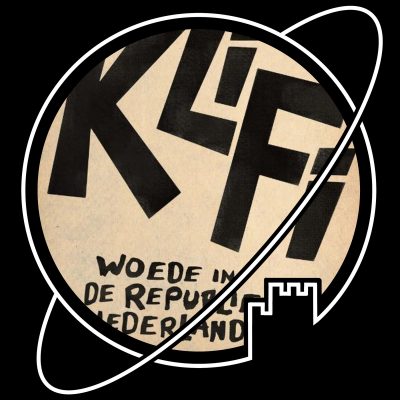- Book written by Adriaan van Dis
- Published February 2021
- Standalone
Set in a future Netherlands, where the King has been sent packing and the government is controlled by a climate-change denying populist president, this is the story of Jákob Hemmelbahn, son of Hungarian refugees that fled the communist regime, but grew up in the Netherlands. As storm-induced floods wash away the lives and livelihoods of his outcast neighbours, he is dragged out of political apathy and turns to his keyboard to find a way to resist.


Listened to the audiobook with Van Dis himself. Well-read.
Adriaan van Dis is a living giant in Dutch Literature (with a capital L), and to be honest, I never yet liked anything he wrote.
To give you some context, Dutch literature is mostly about: (i) the Second World War; (ii) how colonising Indonesia made Dutch people Sad™; or (iii) sex. Preferably some weird amalgamation of the three, but honestly, mostly sex. If a Dutch literary novel features sex, it will be graphic, plastic, lust- rather than love-driven, will make all those involved Sad™, and will make you feel somewhat like a voyeur for reading it (or, alternatively, Sad™ yourself). Additionally, Dutch literature tends to deify the banality of day-to-day life, seeking endless depth and meaning in people doing really normal things.
With that out of the way, you can imagine none of the reviewers on this website are particularly partial to Dutch literature. Maybe you can also imagine that when Van Dis dropped a book titled ‘KliFi’, my brain short-circuited. I don’t like Van Dis. But there was no way I was not going to read that.
The book is nothing if not surprising. It is an actually quite well-constructed near-future sci-fi dystopia where the Netherlands has 40-degree Celsius summers, hurricanes hit the North Sea, and a populist pretend-intellectual is in charge, claiming climate change is not real, smashing abstract art in museums, and deporting non-ethnic Dutch people by the hundreds. In this bleak world, the main character, Jákob Hemmelbahn, a child of refugee parents, witnesses a flood that sweeps away a settlement of illegal residents in a river’s floodplains. The government’s response is to cover up the damage and deport the residents – and Jákob wants to act. Van Dis, being a writer himself, figures that this character’s urge to do something is best translated into … writing a book about it. So we follow along as Jákob sets to writing, struggling with his inner demons, balancing between telling the truth and his book passing the test of the censors.
The book shares some of the pitfalls of other Dutch literature – notably the completely unnecessary horniness of (and towards) its 84-year-old protagonist and the absolute worship of the supposedly ‘normal’ survivors of the flood. But if you can overlook those quirks, it is an interesting take on the cli-fi genre, a warning against apathy in the face of climate denial and populism, a vivid picture of a Netherlands-that-could-be, and a nicely manageable piece of well-constructed prose. It is not the Netherlands’ 1984, but I can imagine it becoming a staple of Dutch literature classes in the future.
It has only appeared it Dutch so far, but for our Dutch readers, it is an easy recommendation because it is only about 200 pages long – an easy way to venture a few careful steps out of our comfort zones, a way to get our more literary focussed friends and family to try a different genre, and an interesting conversation starter at worst.

When we started this website, I never would have thought we would end up reviewing a book by Adriaan van Dis in this genre. As Peter explained, he is a famous name in Dutch literature, and absolutely not one I would associate with either fantasy or science fiction. Perhaps that is why this book felt so strange to me: it has the tone of the Dutch classics that I remember having to read in high school, but it’s themes are those of today. Climate change, xenophobia, refugees and the rise of populism all take central stage. While this might sound like an interesting recipe for a book, sadly I found I did not love it. I did not hate it either, mainly because it is so short that by the time you grow tired of it, you’ve already finished it.
The main character Jákob is not particularly likable. He spends most of the book being very angry about everything that is happening, and yet somehow I never got the feeling that his outrage resulted from a place of true empathy towards the refugees. His ‘activism’ felt mostly like the equivalent of someone posting angry and self-righteous comments on Twitter. On the whole, there just were not enough elements that really pulled me into the book, and so I found it hard to care very deeply about what was happening. While the book brought up some really important issues, it did not deal with them in a way that felt particularly new or inspiring to me. However, for people who are fans of Adriaan van Dis but are less familiar with dystopian fiction, this book might be a good introduction to these themes.





